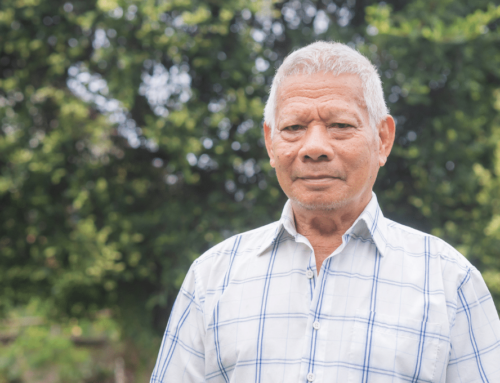In a rapidly evolving world, our views on mental health have changed through the years alongside shifts in culture, technology and societal norms. Each generation has its own set of values, experiences, challenges and historical contexts which results in differing perspectives. Here, we explore how different generations view mental health, the factors that have shaped these perspectives, and how we can bridge the generational gap to promote better understanding and support.

The Silent Generation (Born 1928-1945)
Members of the Silent Generation often grew up in a time when discussing mental health issues was considered taboo. Stiff upper lips and stoic attitudes were the norm. Seeking help for mental health challenges was seen as a sign of weakness. Many of this generation still carry these beliefs, making it challenging to openly discuss mental health issues. However, some are now educating themselves and advocating for better mental health awareness, realizing that seeking help can lead to a healthier and happier life.
Baby Boomers (Born 1946-1964)
Baby boomers experienced significant cultural shifts during their lifetime. They were adolescents during the counterculture movement of the 1960s and witnessed the deinstitutionalization of mental health care. Many boomers are influenced by the idea that mental health issues can be resolved through personal growth and self-help. While some embrace therapy and self-exploration, others remain skeptical of psychiatric medications. There lies a diversity of attitudes within this generation.
Generation X (Born 1965-1980)
Generation X grew up in the era of increasing divorce rates and the latchkey kid phenomenon. This generation has been known for its independence and self-reliance. They were the first to experience the rise of the self-help movement and the stigmatization of mental health issues. While some Gen Xers are open to therapy and mental health support, others may still carry a degree of skepticism, believing that they should “tough it out” on their own.
Millennials (Born 1981-1996)
Millennials have grown up in a time of rapid technological change and increasing mental health awareness. They tend to be more open and accepting of discussing mental health issues. Social media and the internet have given them access to information and resources about mental health. As a result, they are more likely to seek help and support when needed. Mental health advocacy and self-care are central themes for many in this generation.
Generation Z (Born 1997-2012)
The youngest generation, Gen Z, has grown up in a world that is even more connected through technology and social media. They have a wealth of information at their fingertips and are generally very open about their mental health challenges. Conversations around mental health are common, and many are advocates for breaking the stigma surrounding it. They have a strong belief in the importance of mental well-being.
Bridging the Generational Gap
It is imperative on our journey towards a more open, understanding society that we bridge the gap and promote a better understanding of mental health. Here are a few ways we can make that happen:
- Educate: Older generations can benefit from educational programs and resources that inform them about the importance of mental health and the effectiveness of various treatment options.
- Share Personal Stories: Encourage open conversations about mental health. When individuals from different generations share their personal stories and challenges, it helps humanize the issue.
- Support System: Create a support system within families and communities. This includes offering support and resources for those who may be struggling with their mental health.
- Respect Individual Choices: Understand that each person’s approach to mental health is unique. Respect their choices, whether it involves therapy, medication, or alternative methods.
- Advocate for Policy Changes: Advocate for policies that improve access to mental health services, ensuring that all generations have the necessary resources and support.
While each generation may have its own perspective on mental health, fostering open communication and understanding can lead to a more supportive and empathetic approach to mental well-being for all. By learning from each other’s experiences, we can collectively work toward a more mentally healthy future.
If you or a loved one needs professional assistance, don’t hesitate to reach out to the experts at Oaks offering caring, compassionate programs for adults, children, and families. To learn more about Oaks services or schedule an appointment, call our Access Center at 1-800-963-3377.








